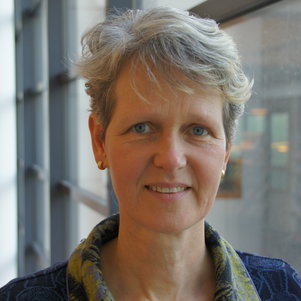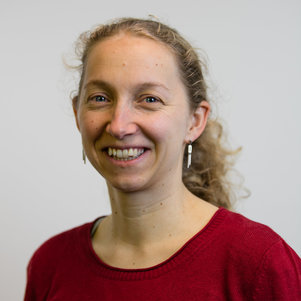Water and Delta Systems
Water is essential for societies and eco-systems. Globally, water systems are under pressure from ongoing socio-economic development and climate change. Water-related issues - like flooding and drought, access to drinking water and sanitation, sea-level rise and land subsidence, and ecosystem and environmental degradation - are high on political agendas and in the actions of international organizations and NGOs. These issues are especially prevalent and urgent in urbanizing deltas, the regions in the world that manifest themselves as socio-economic powerhouses and vital ecological areas.
For whom?
For 2nd year MSc students who are concerned about the sustainability of water and delta systems. For students who want to broaden their knowledge on the challenges that these systems face around the world and are interested to learn how these issues may be addressed.
For students who aspire to a job at the crossing edge of society, science and technology: as a consultant on water, spatial planning or sustainability topics; as a designer, operator or manager of large infrastructure works; as policy maker in government or for a regional water authority; as an analyst in a think tanks or NGO.
This electives package was designed for 2nd year students of the MSc programs at TPM: CoSEM, EPA, MOT. We welcome students of other MSc programmes, such as:
- Interfaculty programs: Industrial Ecology, CME, TIL
- At CiTG: EE/Water Resources and CiTG/Hydraulic Engineeering,
- At Architecture: Urbanism
Students who will graduate under guidance of TPM faculty can use these ‘water and delta’ electives to prepare themselves for water- and sustainability-related thesis projects. Students from CiTG or other faculties can use these electives to broaden their knowledge and methodological toolkit in preparation for theses on topics that cross the boundaries between science, technology, and society.
Prior knowledge
All courses assume that you have a background in engineering, are familiar with systems analysis and systems thinking concepts, and are curious about water and delta systems. We assume a ‘growth mindset’ and support students who want to expand their horizon beyond their core background.
The TPM802 and TPM026A courses require basic quantitative modeling skills. Consult the Study Guide for information on expected prior knowledge. It is your responsibility to acquire this knowledge before the course starts.
What will you learn?
Water and land are inextricably entwined. The sustainability of living in deltas depends on how we manage this relationship: every land decision is a water decision and vice versa. The courses in this electives package all address real world sustainability issues in water and delta systems and how these issues are interlinked.
The six courses, from their specific angle, support you in learning how to characterize ‘water in delta’ issues in their specific contexts and how to analyze the solution space. You gain insight in the complex and dynamic interplay of nature, technology and digitization, people, governance, politics, and economic interests. You learn why the sustainability issues in deltas are shifting. We are used to dealing with issues related to living with water (flood risk, subsidence) but these become more urgent, more severe. We need to learn how to deal with issues related to living without sufficient water (droughts) and within polluted and deteriorated ecosystems. You will learn why optimal solutions are not possible for these issues and how we can strive for satisficing solutions. You will develop a holistic, socio-technical-environmental perspective and sharpen your skillset for analyzing, designing for and managing complex water-related issues with a special consideration for delta’s.
You will learn or enhance skills that are widely sought after in the job market, namely: the skill to integrate thinking from a technical, societal and managerial perspective. You learn to address problems in deltas with a holistic mindset rather than to reduce problems to the point where a purely technical solution seems possible. You learn how you can connect your specialist (technical) knowledge with new insight in how a socio-technical system within a delta may behave over time.
TPM-students with an interest to gain more knowledge on natural processes and technology related to water- and deltas may elect to follow courses offered by the faculties of Civil Engineering or Architecture. A list of suitable courses is available.
Education methods
The education methods differ per course. See the study guide for detailed information.
Overall, teachers make a concerted effort to make the course ‘hands on.’ Activities include excursions, qualitative and quantitative assignments, interviews with practitioners, online gaming, modelling, critical appraisal and analysis. All courses give individual assignments, some courses offer a written exam as well.
Course overview
Note: All courses will be given in English.
Electives:
- TPM801a - Introduction to Water Governance in Deltas (5 ECTS, Q1)
- TPM802a - Model-based Assessment of Water Systems ( ECTS, Q1)
- TPM026a - System Reliability in Quantitative Risk Assessment (4 ECTS, Q1)
- TPM803a - Building with Nature and Beyond (5 ECTS, Q1 or Q2)
- TPM803 - Building with Nature and Beyond (5 ECTS, Q1 or Q2)
- TPM003a - Water Ethics (5 ECTS, Q2)
- TPM804a - Adaptive Planning for Management of Water Systems (5 ECTS, Q2)
For course descriptions, please visit the study guide.
Register for this elective
Please fill in your application in My Study Planning and enroll this elective package in Brightspace.
Contact details
In case of questions, please contact the coordinators Lisa Scholten and Tineke Ruijgh-van der Ploeg.

